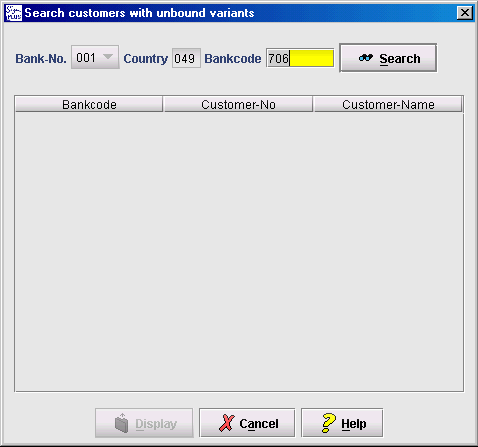Search for unbound variants
The country number must be entered in the dialog Search for customers with unbound variants. To limit the search, the branch number must also be entered. The search is started by selecting the Search button.
Depending on the amount of data, the search process can take a very
long time.
After a successful search, a list of the corresponding customers of this branch is produced. Using the mouse, the user can select a customer. By selecting the Display button, the customer is shown together with authorized signatories and the Unassigned variants.

